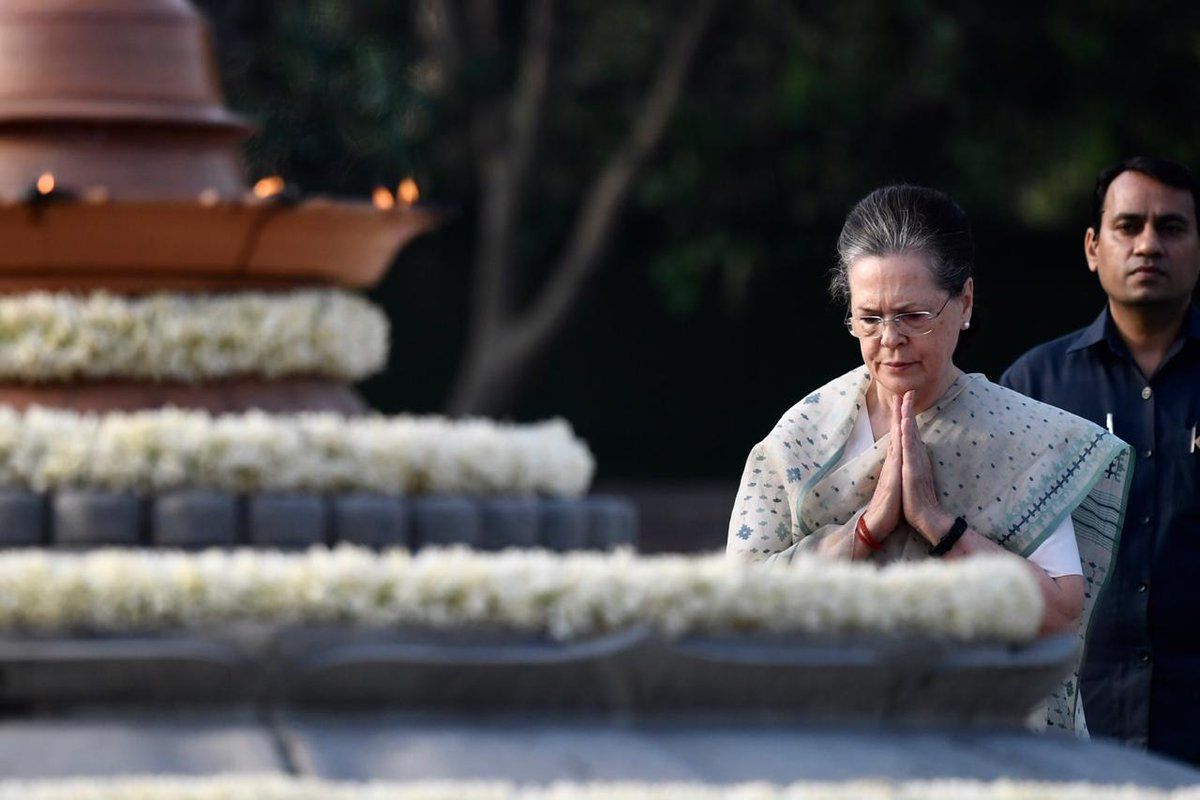


On the 33rd death anniversary of former Prime Minister Rajiv Gandhi, Indian Prime Minister Narendra Modi and top Congress leaders, including Sonia Gandhi and Rahul Gandhi, paid their respects at Veer Bhumi in Delhi. Rajiv Gandhi, who became the country's youngest Prime Minister at the age of 40, succeeded his mother and predecessor Indira Gandhi. These tributes come with a reminder from Prime Minister Modi of fulfilling the late leader's vision for the nation.
Rajiv Gandhi: India's Youngest Prime Minister Remembered on 33rd Death Anniversary
Former Indian Prime Minister Rajiv Gandhi was remembered on the 33rd anniversary of his assassination on May 22nd, 2023. Paying tributes at Veer Bhumi in Delhi, Prime Minister Narendra Modi and top Congress leaders, including Sonia Gandhi and Rahul Gandhi, honored his legacy.
Background
Rajiv Gandhi, born on August 20th, 1944, was a member of the prominent Nehru-Gandhi family. He entered politics after the assassination of his mother, Indira Gandhi, in 1984. Gandhi became the sixth Prime Minister of India at the age of 40, the youngest person to hold the office.
Tenure as Prime Minister
Gandhi's tenure was marked by several significant reforms, including:
Assassination and Legacy
On May 21st, 1991, Rajiv Gandhi was assassinated by a suicide bomber during an election campaign rally in Tamil Nadu. His death shocked the nation and led to widespread mourning.
Gandhi is remembered for his youthful idealism, his efforts to promote peace and unity, and his vision for a modern and prosperous India. His assassination remains a tragedy for the country and a reminder of the challenges it faces.
Top 5 FAQs
1. Why is Rajiv Gandhi's death anniversary significant?
Gandhi's death anniversary is significant because he was a beloved leader who was tragically killed in his prime. His assassination marked a pivotal moment in Indian history and continues to be mourned.
2. What were Rajiv Gandhi's major contributions as Prime Minister?
Gandhi's major contributions include economic liberalization, promotion of science and technology, improved relations with neighbors, and efforts to suppress ethnic violence.
3. Who was responsible for Rajiv Gandhi's assassination?
Gandhi was assassinated by a suicide bomber belonging to the Liberation Tigers of Tamil Eelam (LTTE), a terrorist group based in Sri Lanka.
4. How did Rajiv Gandhi's assassination impact Indian politics?
Gandhi's assassination led to a period of political instability and violence in India. It also raised questions about the country's internal security and the government's ability to protect its leaders.
5. What is Rajiv Gandhi's legacy?
Gandhi's legacy is that of a young and dynamic leader who sought to modernize and unite India. He is remembered for his idealism, his efforts to promote peace and prosperity, and his tragic death.

Prime Minister Narendra Modi celebrates Diwali with Navy personnel aboard INS Vikrant, praising the warship's role in instilling fear in Pakistan. He commemorates India's military might and the bravery of armed forces in Operation Sindoor, while also highlighting INS Vikrant as a symbol of Atmanirbhar Bharat and Made in India. The festive celebrations on board consisted of cultural performances and an air power demonstration, making the occasion deeply symbolic and unforgettable.

Prime Minister Narendra Modi celebrated Diwali with the crew of India's indigenous aircraft carrier INS Vikrant, describing the ship as a symbol of Aatmanirbhar Bharat and Made in India. He saluted the Indian Navy, Air Force, and Army for their courage, skill, and coordination, especially during the 1971 victory over Pakistan. The Prime Minister also highlighted the progress towards self-reliance in India's defence production, with thousands of items now being manufactured domestically and a new indigenous warship or submarine being inducted into the Navy every 40 days on average.

On October 21, Defence Minister Rajnath Singh will honor the sacrifices made by police personnel at the National Police Memorial on Police Commemoration Day. The Memorial serves as a symbol of the strength and selflessness of police officers who have laid down their lives in the line of duty. The central sculpture, 'Wall of Valour', and museum at the Memorial provide a sense of national identity and pride for Police Forces.

Prime Minister Narendra Modi made a surprise visit to INS Vikrant, India's flagship aircraft carrier, on Diwali eve 2025. This marked his first visit to the high seas to celebrate with the Navy personnel stationed there. His visit included cultural activities, a yoga session, and an inspiring address to the naval staff, further strengthening the bond between the leader and the armed forces.

Prime Minister Narendra Modi celebrated Diwali with the Indian Navy on the INS Vikrant aircraft carrier stationed off the coast of Goa and Karwar. The cultural programme organized by the Navy was described by PM Modi as an unforgettable experience. He also praised the dedication and creativity of the naval personnel and highlighted the success of the armed forces in Operation Sindoor with a patriotic song "The Vow of Sindoor". In addition, PM Modi also addressed the country's security forces and lauded their efforts in combating Naxalism.

In a powerful Diwali speech on board INS Vikrant, Prime Minister Narendra Modi lauded the coordination of India's armed forces in Operation Sindoor, which led to a swift surrender by Pakistan. He also emphasized the importance of self-reliance in strengthening the armed forces and highlighted India's progress in manufacturing essential military equipment domestically. He further announced India's goal to become a top defence exporter, with a significant increase in defence exports in the last decade.

Prime Minister Narendra Modi continued his tradition of celebrating Diwali with India's armed forces by visiting the INS Vikrant off the coast of Goa and Karwar. He praised the Navy personnel for their dedication towards the security of the nation and expressed his gratitude to the families of the brave soldiers. PM Modi also witnessed an impressive display of precision and prowess during an Air Power Demo on INS Vikrant, showcasing the technological excellence of the Indian Navy.

Prime Minister Narendra Modi celebrated Diwali 2025 with Indian Navy personnel aboard the indigenous aircraft carrier INS Vikrant, highlighting the ship's strength and psychological impact on adversaries. Commissioned in 2022, the carrier is a symbol of India's self-reliance and strategic resolve. PM Modi praised the bravery and dedication of the naval personnel, reinforcing the bond between the armed forces and the government.

The Allahabad High Court has directed the Jailer of Hisar Central Jail in Haryana to provide an explanation on how self-styled Godman Sant Rampal, currently held in the jail, is able to write and distribute books that allegedly target Hindu deities. This comes after a plea was filed by Hindu Front for Justice, calling for a ban on the books and action against Rampal. The petition alleges that the books contain offensive and provocative language and have been distributed through electronic communication platforms, causing disharmony between religious communities.

Following the latest string of scandals involving Prince Andrew, King Charles was photographed attending a Sunday morning service near his Scottish estate. The King wore a solemn expression as he drove to Crathie Kirk, displaying tension amidst a tumultuous time for the royal family. Recently, Prince Andrew announced his resignation from the Duke of York and membership of the Order of the Garter, the oldest chivalric order in the UK.